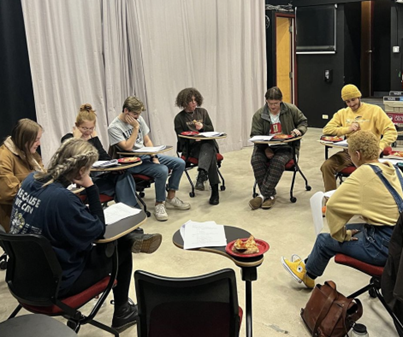 Photo by:
Photo by:
Like he did in his previous bestselling books, Jon Krakauer once again studies an irrepressible, individualistic and iconoclastic young man in order to delve into the deeper, more over-arching theme of why men go to war.
In Where Men Win Glory—The Odyssey of Pat Tillman, Krakauer writes about Pat Tillman’s epic journey from playing on the NFL gridiron on Sunday afternoon to his enlistment as a U.S. Army ranger with his brother Kevin in May 2002 and finally concludes at Tillman’s death on a bleak hillside in Southeastern Afghanistan in April 2004.
Tillman’s journey from fame to death by friendly fire is the heart of Krakauer’s brave exploration that undertakes an array of subjects such as military cover up of the truth and the way Tillman’s death was exposed as governmental propaganda.
Krakauer uses Tillman to investigate the subject of alpha maleness, masculinity and the absurd ideology that some men, Tillman included, live their life by when they dedicate their lives to combat.
Krakauer’s strength comes in investigating the military cover up post-Tillman’s death, which in turn allowed the top leaders of the government to sell Tillman as a patriotic hero in attempt to sway public opinion that the unsuccessful war in the Middle East was harvesting positive results.
In reality, Tillman’s death was not a noble or courageous one, because he met his end at the hands of his own soldiers, who were not charged with any crimes for their wrongful actions, rather just demoted from Rangers to a lower section of the military.
Krakauer powerfully inserts Tillman’s own diary entries as well as interviews he has composed with the Rangers that fought next to Tillman.
Most importantly, Marie Tillman extensively helped the author get to know his subject from a more personal perspective.
Throughout the book Krakauer has a control, despite the range of topics he decides to cover.
However, Krakauer does lose focus in several different points, drowning the reader in the lengthy complicated history of the war in the Middle East.
One thing that Krakauer sets out to prove and accomplishes in this historical exploration is the difference between coddled American adult males and fierce, combatitive Muslim men.
Although the various historical references swerve away from Krakauer’s main thesis and shift to an entirely different war than the one Tillman participated in, they are extremely informative and chock full of useful historical knowledge.
The one thing that Krakauer fails to do in this novel is estimate and predict how Tillman’s outcome would have been if America had denied war in the Middle East instead of inflicted itself with the conflict for the fourth straight decade.
Once again, Krakauer has a character in Tillman who parallels his previous protagonists Christopher McCandless (Into the Wild) and Rob Hall (Into Thin Air), who opts to stay authentic to his ideals, which in turn results in inevitable and aforementioned death.
Krakauer painfully questions at the end of his book that if Tillman is to be regarded as tragic hero then what was the tragic flaw, or Achilles’ heel, that led to his death.
Krakauer evaluates that it was Pat’s “stubborn idealism” and “insistence on trying to do the right thing” that caused his death, but as he writes in the last sentence that in this “case it wasn’t a tragic flaw that brought Tillman down, but a tragic virtue.” In the end, the reader makes the final judgment.










